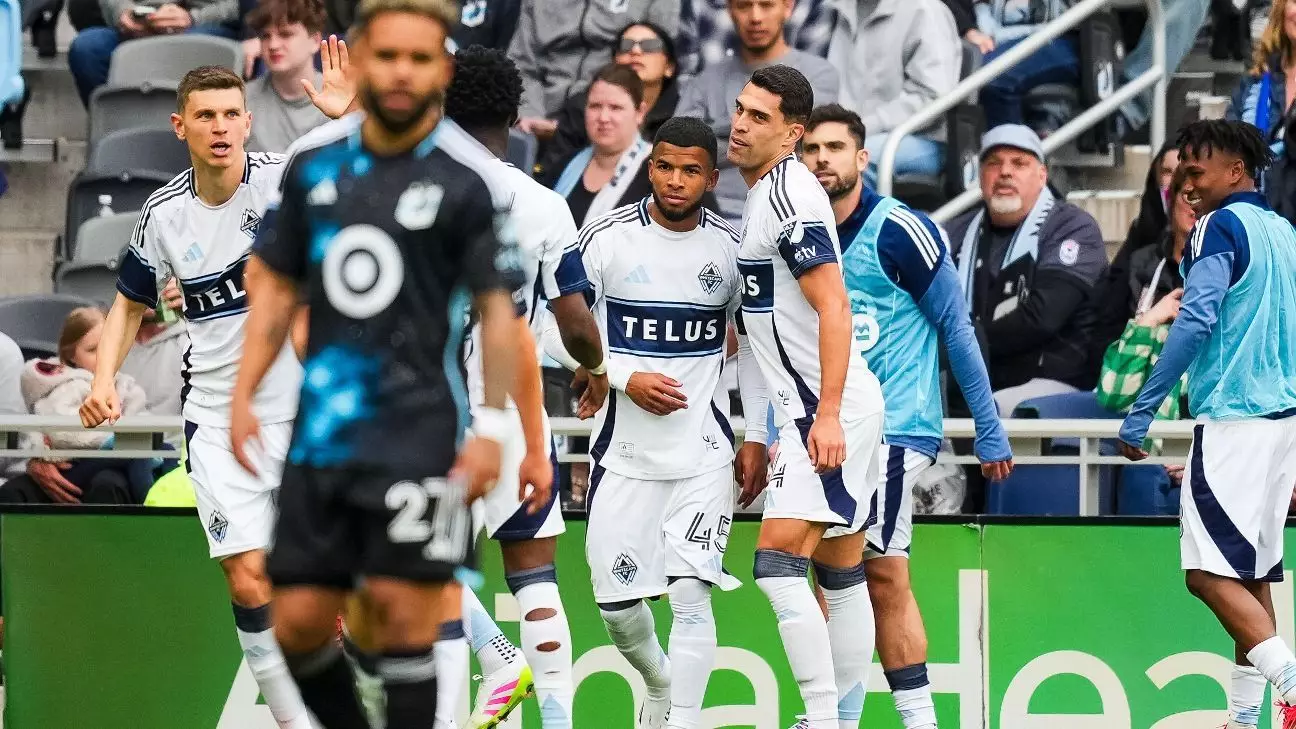The recently reported event during the MLS match between Minnesota United FC and the Vancouver Whitecaps serves as a sobering reminder of the lingering issues of discrimination within sports. Known for its passionate fan base and competitive spirit, soccer is often celebrated as a unifier that bridges cultural divides. However, incidents like this highlight that the sport still grapples with toxic behavior that undermines this very ideal. A verbal skirmish between players Joseph Rosales of Minnesota and Emmanuel Sabbi from Vancouver escalated to a point where it warranted intervention through the league’s Non-Discrimination Policy. The referee’s hesitance to impose immediate sanctions only complicates the league’s approach to tackling discrimination.
While the embers of anger flared on the pitch, the real issue lay in the underlying culture. The incident not only exposed the volatility of the moment but also raised concerns about the standard of behavior expected from professional athletes. For those in positions of authority, including referees, recognizing and acting against verbal abuse remains critical, especially when the integrity of the game and its inclusive nature is at stake.
Accountability and Responsibility
Minnesota United FC’s response to the situation is commendable; the club demonstrated an understanding of the gravity of the allegations and a commitment to collaborating with Major League Soccer for a resolution. Their statement expressing zero tolerance for discriminatory behavior is not just a template response but a call to action for accountability on all fronts. This moment serves as a lesson for various stakeholders, including clubs, players, and fans, reinforcing that every individual attached to the brand must acknowledge and take responsibility for their actions, either directly or indirectly.
Recent history echoes this sentiment. Instances of disciplinary action taken against players for racist remarks indicate that the league is making strides toward imposing consequences on those who breach the boundaries of acceptable behavior. High-profile suspensions of players such as Kai Wagner and Dante Vanzeir illustrate that the MLS is beginning to wield the power of consequence to instigate cultural change. It is only when such behavior is dealt with firmly that true progress can be made. The forthcoming review by MLS will need to focus on not just the isolated incident but also how the league can better educate and enforce its Non-Discrimination Policy among its ranks.
Educational Initiatives: A Road to Change
The integration of educational initiatives, like the training program designed in collaboration with Black Players For Change and the MLS Players Association, represents a proactive approach that should be lauded. Through these efforts, MLS aims to inform players about the unacceptable nature of certain phrases and contextualize the impact of their words. It’s crucial that foreign players, especially, receive this education to understand that their backgrounds should not dictate their freedom to express what may be considered humorous or trivial in their cultures.
Moreover, encompassing everyone from the playing field to technical staff in the training program demonstrates a comprehensive methodology in challenging the culture that allows such language to permeate the sport. The efficacy of these programs hinges on active participation and continual reinforcement of their importance. For an organization to transform culture, it must be a top-down responsibility. Leadership, clubs, and players alike must collectively commit to embracing diversity and inclusivity.
The sport of soccer, celebrated globally for its rich history and the passion it ignites, should serve as a leader in the fight against discrimination and hatred. As spectators, players, and their associated communities come together in celebration of the game, it’s imperative that they also unite against discriminatory actions that threaten the essence of what sports represent. Every match—and every verbal exchange—on the field is a testament to the values we uphold. It is essential for all involved to ensure that the atmosphere remains one of respect, understanding, and unity, consistently pushing the boundaries toward a more inclusive and equitable environment. The road ahead is challenging, but with commitment and responsibility, real change is not just a possibility, but an ongoing journey we must undertake together.


Leave a Reply